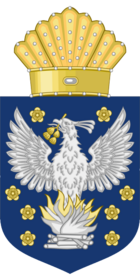Coup of 1955
| Coup of 1955 1955 쿠데타 | |||||||||
|---|---|---|---|---|---|---|---|---|---|
| Part of Third Republic | |||||||||
| File:Kim Shimin Coup.jpg The 12th Mechanized Division was one of the key forces that led to the successful coup. | |||||||||
| |||||||||
| Belligerents | |||||||||
|
|
| ||||||||
| Commanders and leaders | |||||||||
|
|
| ||||||||
| Units involved | |||||||||
|
12th Mechanized Division 1st Infantry Brigade 606th Specialized Warfare Unit Various unconfirmed units |
Capital Defense Command 1st Mechanized Division | ||||||||
| Strength | |||||||||
|
156 armored vehicles and tanks 21,000+ personnel |
200+ armored vehicles and tanks 20,000+ personnel | ||||||||
| Casualties and losses | |||||||||
| 12 dead, 130 wounded | 44 dead, 200 wounded, hundreds captured as POW | ||||||||
Part of a series on the |
|---|
| History of Zhenia |
 |
| Timeline |
The Coup of 1955 (Zhenian: 1955년 쿠데타), often referred to some as the Revolution of 1955, was a successful military coup d'etat in Zhenia, organized and carried out by numerous Zhenian military leaders including Kim Shimin and his allies, who, after disbanding the Front of National Salvation following the success of the coup, later formed the National Reconstruction Council and eventually the Third Republic. The coup successfully removed then-Chancellor Choi Yoondeok out of power and the eventual end of the Second Republic, with the government to be temporarily replaced by the National Reconstruction Council.
Provoked by the dissent of former Zhenian military commanders after the Zhenian defeat of the Second Great War, the coup drew support from a vast majority of the then-resurrected Greater Eastern Union Defense Forces. The success of the coup resulted in the dominance of a developmentalist elite in Zhenian politics, as well as the foundations for an era of Zhenian economic resurrection known as the Miracle of the Danbon River. Although Kim Shimin is regarded as overall positive among Zhenians, the nature of the coup as a revolution remains to be contested.